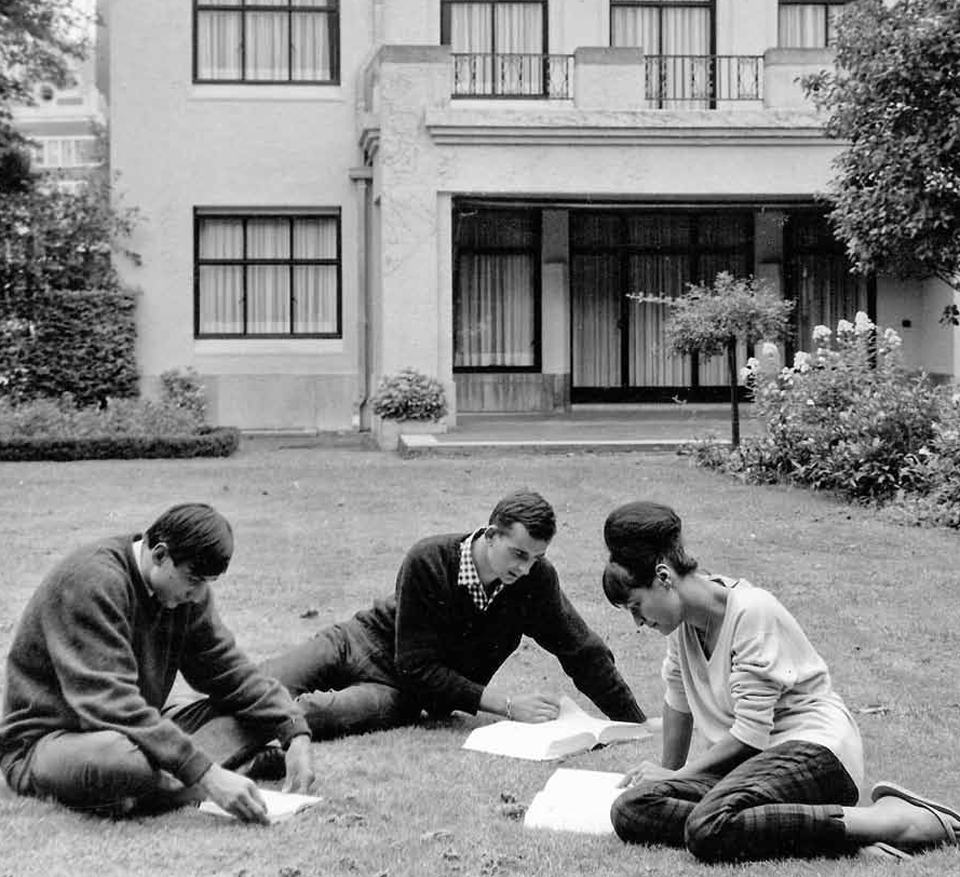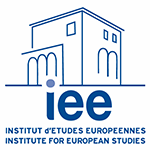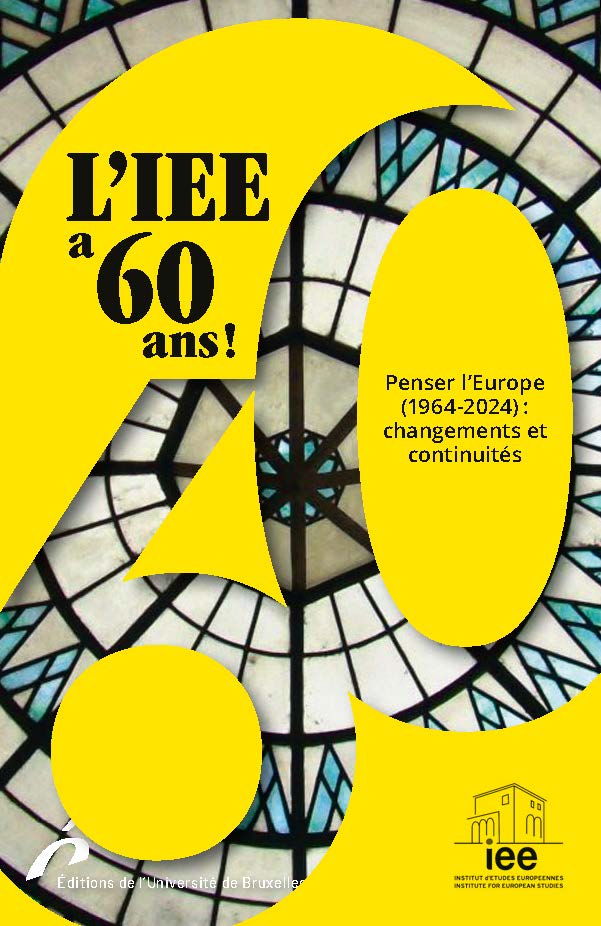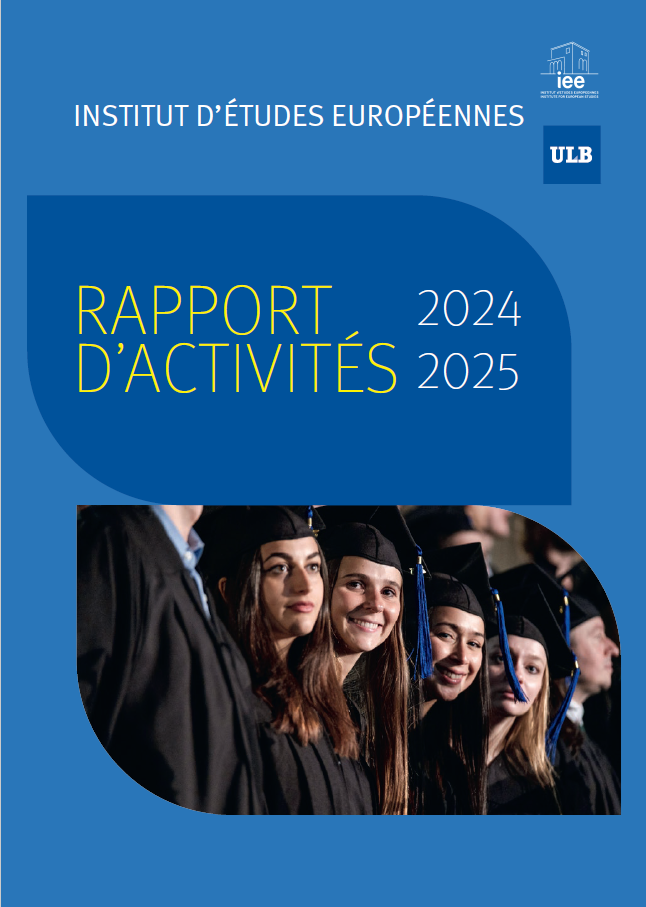In the same section
-
Share this page
The IEE-ULB, 60 years of history
Innovating in step with European integration is a tradition at the IEE-ULB.

IEE-ULB, a reflection of European construction
The IEE-ULB is one of the oldest teaching and research institutes dedicated to European studies. The idea of establishing a European studies institute at the ULB was first raised on 17 April 1961 at the Academic Council of the University. The IEE began its activities in October 1963, and the official inauguration of its premises, located at 39 Avenue F. D. Roosevelt, took place on 27 February 1964.
The Institute aims to train specialists in European issues through its teaching. From its earliest years, the Institute has also sought to contribute to critical reflection and debate on European integration.
« Aujourd’hui voit se réaliser un de mes rêves : l’idée de l’Europe trouve sa réalisation la plus officielle, sa consécration académique. […] On me dirait demain que je dois être premier ministre, cela ne me ferait aucun plaisir. Mais à l’idée d’être dorénavant considéré comme professeur d’université, surtout ici, je ne puis cacher ma joie. »
Paul-Henry Spaak at the inauguration of the IEE on 27 February 1964.
Discover the history of the IEE-ULB through a book and a video documentary produced to mark the IEE's 50th anniversary:
BOOK: "The Institute for European Studies: 50 years of research and teaching in pursuit of openness".
VIDEO IEE50: Half a century at the heart of European integration at the ULB
The IEE celebrated its 60th anniversary
In 2024, we had the pleasure of celebrating the 60th anniversary of the IEE-ULB. This was an opportunity to reflect on how we currently teach, think about and discuss Europe, and how we might do so in the future, drawing on the rich history of our institution.
At the conference held on 27 February 2024, three case studies reflecting the Institute's research themes were developed:
- Social Europe
- Relations between European institutions and Member States
- Citizens' perceptions of Europe
The discussion was broadened to include the experiences of other individuals involved in teaching, research and debates on Europe, who were present at the conference (including representatives from universities, think- tanks, the media and donor organisations). This format contributed to outline potential avenues for the future.
This overview of sixty years of activities highlights the pioneering and ever-relevant role of the IEE-ULB. The IEE stands out for its approach, which combines academic tradition and pedagogical and scientific innovation. Its internal diversity in terms of disciplines, nationalities, cultures and languages reflects that of Europe. Its location in Brussels, the European capital and a global city, makes it an exceptional observatory.
Discover all the conference debates on our YouTube channel.
60 years in 6000 characters
To mark this anniversary year, the IEE-ULB invited its members to reflect on questions that were fundamental to European integration in 1964 and are still relevant in 2024. A weekly publication of articles between January and July 2024 contributed to the public debate on the past, present and future of Europe around six themes:
- European narratives
- Europe and the protection of its values
- Europe and the Economy
- Social Europe
- Future-proofing Europe
- Europe and the world
The contributions to the anniversary conference on 27 February 2024 and all the articles from the '60 years in 6000 characters' series are available in ebook format:
“Just as the scope and scale of the European venture has far exceeded anything that could have been imagined in 1964, so too has the IEE stepped up its ambitions by opening up to new areas of academic interest and bringing in an ever-widening array of multidisciplinary researchers from all over Europe and beyond. The European project has grown over time, and the IEE has moved with it.”
Giulia La Torre, PhD candidate, GEM-DIAMOND Doctoral Fellow (ULB & University of Geneva) in her article of the series '60 years in 6000 characters'
The Presidents of the Institute :
- Walter Ganshof van der Meersch (1963-1970)
- Paul de Groote (1970-1972)
- Henri Janne (1972-1975)
- Henri Simonet (1975-1978)
- Paul Foriers (1978-1980)
- Jean-Victor Louis (1980-1992)
- André Sapir (1992-1998)
- Régine Kurgan (1998-2003)
- Françoise Thys (2003-2005)
- Mario Telo (2005-2009)
- Marianne Dony (2009-2014)
- Anne Weyembergh (2014-2019)
- Ramona Coman (2019-2023)
- François Foret (2023-)


